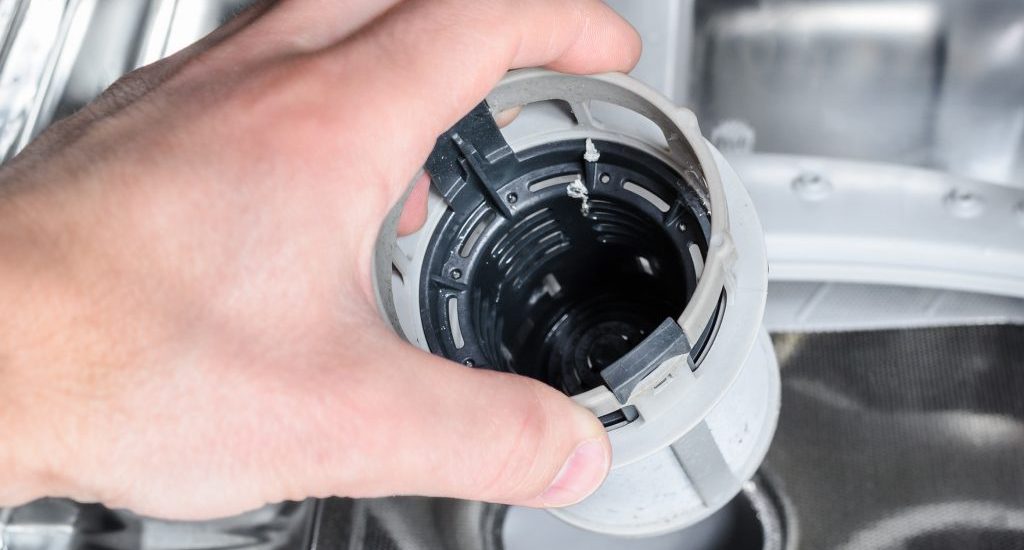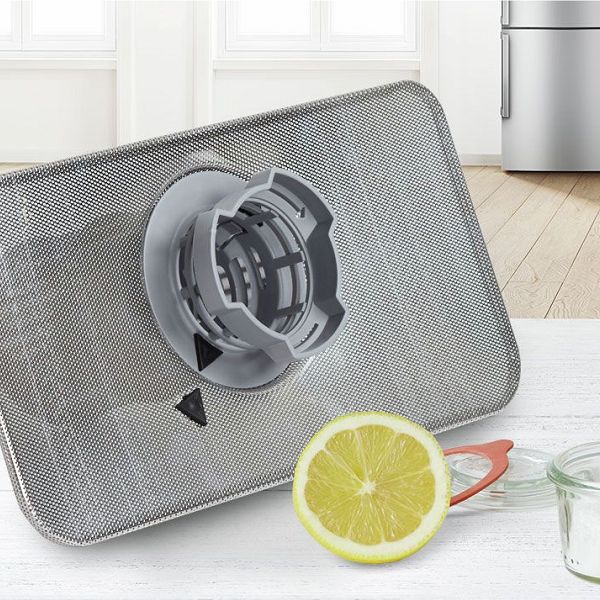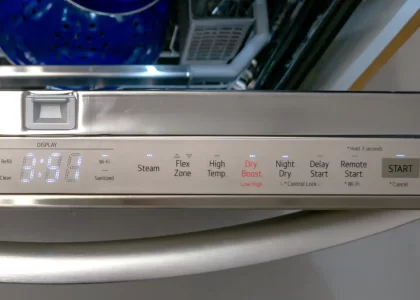Identifying the Causes of Dishwasher Odors
How to clean a stinky dishwasher? To effectively tackle dishwasher odors, it’s crucial to understand their root causes. Here, we explore the typical factors leading to unpleasant smells emanating from your dishwasher.
Common Reasons for Dishwasher Smells
Dishwasher smells often stem from trapped food particles, mold growth, or a dirty filter. Sometimes, smells can also arise from hard water deposits. How to clean a stinky dishwasher? Identifying these issues is the first step towards a fresh-smelling dishwasher.
- Trapped Food: Leftover food gets stuck in nooks causing foul odors.
- Mold Growth: Warm, moist environments are perfect for mold to thrive.
- Dirty Filters: Filters clogged with food residue can harbor smelly bacteria.
- Hard Water: Mineral buildup from hard water can add to the smell.
Addressing these common culprits will go a long way in ensuring a pleasant-smelling appliance.
Impact of Food Buildup and Grease
The buildup of food and grease is a primary source of bad odors in dishwashers. Over time, these can clog filters and spray arms, reducing efficiency and leaving a stench.
- Food Residue: Bits of food decay over time and smell.
- Grease Accumulation: Greasy residues cling to surfaces and filters.
Routine cleaning is essential to remove these residues and maintain a fresh, clean scent in your dishwasher.
Initial Cleaning Steps
Taking the first step towards a fresher dishwasher involves some basic cleaning. Start by focusing on two essential components: the dishwasher filter and the spray arms. Ensuring these parts are clean can often eliminate unpleasant odors right away.
Cleaning the Dishwasher Filter
First, remove your dishwasher’s filter located at the bottom of the machine. Run it under hot tap water and use a small brush to scrub away any trapped food or grease. This task should ideally be done monthly to prevent odor buildup. A clean filter allows water to flow freely, reducing the chances of rotting food smells.
- Remove the filter and rinse it well.
- Gently scrub with a small brush to loosen debris.
- Rinse again and return to the dishwasher.
A clean filter is your first defense against smelly dishwashers.
Washing Spray Arms for Unblocked Water Flow
Next, focus on the spray arms. These can get clogged with food particles, hindering water flow and diminishing cleaning power. Take out the spray arms and rinse them under water. Use a toothpick to unclog the holes where water sprays out. After clearing any blockages, snap the spray arms back in place.
- Detach spray arms and rinse thoroughly.
- Clear holes with a toothpick or similar tool.
- Reassemble to ensure proper function.
By maintaining clean spray arms, you support even water distribution and prevent the onset of funky odors. Perform these initial steps regularly for the best results and a stench-free dishwasher.
Deep Cleaning Methods
Once the initial light cleaning is done, it’s time for deep cleaning methods. How to clean a stinky dishwasher? These steps involve using readily available household items like vinegar and baking soda, which are great for removing stubborn odors and cleansing your dishwasher thoroughly.
Using Vinegar to Deodorize and Clean
Vinegar is not just for salads—it’s a powerful cleaning agent. To use it in your dishwasher:
- Place a cup of white vinegar in a dishwasher-safe container on the top rack.
- Run your dishwasher on the highest temperature cycle.
- This method will help break down food residues and grease, leaving your dishwasher smelling fresh.
Using vinegar helps dissolve grime and neutralizes odors. So, don’t forget to give your dishwasher a vinegar bath occasionally.
Employing Baking Soda for Neutralizing Odors
After vinegar, baking soda is your next best friend. Here’s what to do:
- Sprinkle a cup of baking soda across the bottom of the dishwasher.
- Run a short cycle at the highest heat setting.
Baking soda absorbs and neutralizes lingering odors, leaving your dishwasher smelling clean. Plus, it’s gentle and won’t damage the appliance’s interior.
To keep odors at bay, alternate between using vinegar and baking soda every month. This two-step approach is a game-changer for any smelly dishwasher.
Preventative Measures to Maintain Freshness
To keep your dishwasher odor-free, consistent preventative measures are key. Let’s explore effective ways to ensure your dishwasher remains fresh and efficient over time.
Routine Cleaning of Filters and Interiors
Regular cleaning is essential for maintaining a fresh-smelling dishwasher. Here are quick and simple steps:
- Monthly Filter Cleaning: Detach the filter, wash it under hot water, and brush off debris.
- Interior Wipe-down: Every few weeks, use a damp cloth to wipe the inside walls and door.
These routine cleanings prevent odor buildup and enhance dishwasher efficiency.
Proper Loading Techniques
How you load your dishwasher affects its ability to clean and stay fresh:
- Avoid Overloading: Ensure dishes do not obstruct the spray arm’s movement.
- Scrape Off Food: Remove large food pieces before loading to minimize residue.
- Utilize Correct Rack: Place items in their designated spots for optimum cleaning.
Following these techniques will help reduce the chances of trapped food and odors.
Troubleshooting Persistent Odor Issues
Even with regular cleaning, some dishwashers continue to emit bad smells. Pinpointing the cause of reoccurring odors is critical to resolving the issue effectively.
Diagnosing Recurring Smell Problems
Persistent odors in your dishwasher could signal a deeper issue:
- Check the Drain Hose: Ensure it is not kinked, clogged, or improperly installed.
- Inspect for Mold Growth: Look for black or greenish spots inside the dishwasher.
- Evaluate Seals and Gaskets: Worn out seals may trap debris and cause smells.
- Consider Food Buildup: Residues may linger in hard-to-reach places inside your dishwasher.
Address these possible concerns thoroughly to combat stubborn dishwasher odors.
When to Seek Professional Appliance Repair
There comes a time when DIY solutions might not be enough. Here’s when to call the experts:
- If odors persist after multiple cleanings.
- When water remains at the bottom, indicating drainage issues.
- If you suspect technical faults, like a malfunctioning heating element.
- When there’s visible damage to components like racks and spray arms.
A professional can diagnose and fix issues that lay beyond basic household cleaning.
Long-Term Dishwasher Care
To keep your dishwasher in top shape and odor-free, long-term care is crucial. A combination of regular maintenance and the right cleaning methods will ensure your machine works effectively for years to come.
Regular Maintenance Schedule
Setting up a regular maintenance schedule for your dishwasher is a great way to prevent odors and other issues. Here are the key steps to include in your routine:
- Monthly Filter Check: Inspect and clean your filter every month to avoid food and grease buildup.
- Quarterly Spray Arm Inspection: Every three months, make sure the spray arms are free from clogs and functioning properly.
- Biannual Deep Clean: Use vinegar and baking soda twice a year for an in-depth clean of the entire machine.
- Yearly Professional Check-Up: Once a year, consider hiring a professional to check on the dishwasher’s vital components.
Remember, consistent upkeep helps prevent smells and maintains efficiency.
Importance of Using Proper Detergents and Running Hot Water Cycles
The choice of detergent and operation settings can greatly impact your dishwasher’s performance and smell:
- Choose Quality Detergent: Pick a detergent that’s suited for your dishwasher model and the hardness of your water.
- Prefer Hot Water Cycles: Use the hottest water cycle available for washing. This helps dissolve grease and prevents residue.
- Run Full Loads: Make sure to run the dishwasher only when it’s full to conserve energy and water.
How to clean a stinky dishwasher? Proper usage and care not only keep your dishwasher smelling fresh but also prolong its lifespan. Stick to these long-term care tips to enjoy a clean, odor-free kitchen environment.








